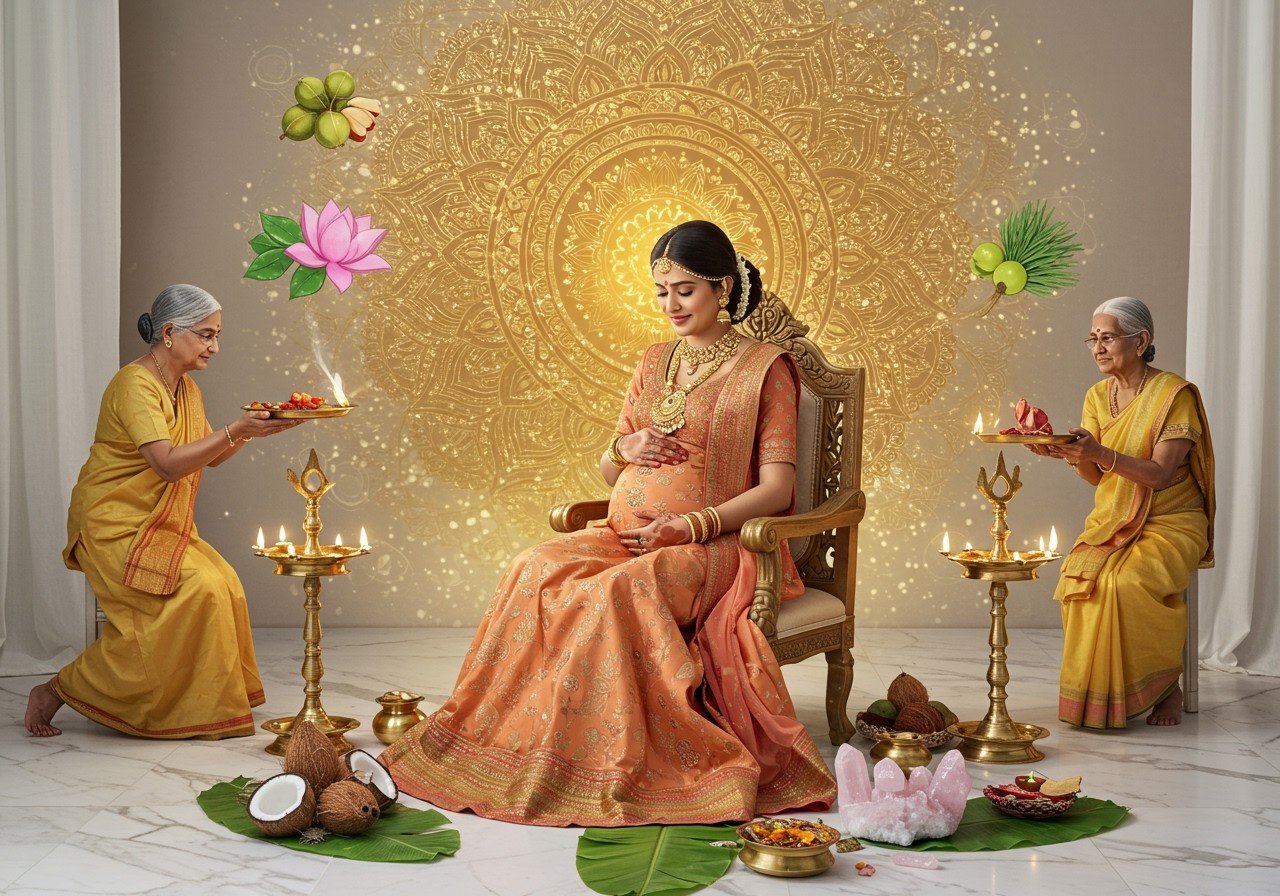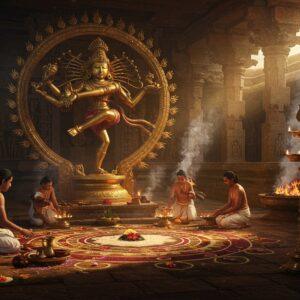
Indian prenatal traditions are deeply rooted in cultural beliefs and practices that honor the journey of motherhood. These customs, cherished through generations, continue to hold immense significance in 2025, blending ancient wisdom with modern adaptations. For families who value tradition, preserving these rituals is a way to connect with their heritage and celebrate new life. Thankfully, online shopping offers convenient access to authentic items needed for these cherished customs, making it easier than ever to honor these time-honored practices.
Understanding Garbha Sanskar
Garbha Sanskar, a cornerstone of Indian prenatal traditions, focuses on creating a positive and nurturing environment for the unborn child. This ancient practice emphasizes the importance of prenatal education, believing that a peaceful and stimulating atmosphere positively influences the baby’s development. Elements like soothing music, mindful meditation, and positive affirmations are central to Garbha Sanskar. Interestingly, modern science echoes these beliefs, acknowledging the benefits of a positive prenatal environment for fetal growth and development. In 2025, families seamlessly incorporate Garbha Sanskar into their daily routines, engaging in activities that promote positivity, tranquility, and a deep connection with the little one.
Regional Variations in Pregnancy Rituals
In 2025, Indian pregnancy customs beautifully showcase the country’s rich cultural tapestry. These customs, passed down through generations, blend age-old traditions with modern sensibilities. Each region of India adds its unique touch to prenatal celebrations, resulting in a vibrant spectrum of beliefs and practices that honor the miracle of motherhood.
North Indian Traditions
In North India, the Godh Bharai ceremony takes center stage, typically celebrated in the seventh or eighth month of pregnancy. This joyous occasion brings together friends and family to shower the expectant mother with blessings, gifts, and heartfelt wishes. The air is filled with laughter, love, and anticipation as the mother-to-be, adorned in vibrant attire and sparkling jewelry, is pampered and celebrated. This ceremony is a testament to the strong community support that surrounds expectant mothers in North Indian culture.
South Indian Customs
Down South, the Valaikappu ceremony is a cherished tradition, also held during the seventh month. This ritual is a sensory delight, filled with vibrant colors, fragrant flowers, and the melodic chime of bangles. The expectant mother, dressed in her radiant wedding saree, sits on a beautifully decorated dais. Close female relatives perform the nalangu, a ritual of adornment. They apply sandalwood paste on her arms, tuck fragrant flowers in her hair, and place a thilagam, a red dot of saffron, on her forehead. The highlight of the ceremony is the adorning of her arms with colorful glass bangles, each clink symbolizing a wish for a healthy and beautiful child.
Eastern Rituals
Eastern India has its own unique customs, such as the Saadh ceremony, which focuses on nourishing the expectant mother. Family and friends gather to prepare a feast of the mother’s favorite foods, emphasizing the importance of maternal well-being during pregnancy. This heartwarming tradition reflects the deep care and support provided to expectant mothers, ensuring they receive the nourishment they need during this special time. It’s a celebration of food, family, and the joy of new life.
Western Indian Practices
In Western India, the Dohale Jevan is a significant ritual that centers on maternal health. Special foods believed to be beneficial for both the mother and baby are lovingly prepared and shared. This ceremony strengthens community bonds as everyone contributes to ensuring the mother’s well-being. The focus on nutrition and the collective effort to support the expectant mother highlight the importance of community care in Western Indian traditions.
You can explore a variety of traditional items for these ceremonies at https://www.poojn.in/product-category/poojn-stores/holy-food.
Modern Adaptations of Traditional Rituals
As lifestyles evolve, so too do these time-honored traditions. Technology now plays a key role in keeping these customs alive while adapting to modern needs. In 2025, it’s common to see families hosting virtual Godh Bharai ceremonies, connecting loved ones across geographical boundaries. This heartwarming adaptation allows everyone to participate, sharing blessings and joy regardless of distance.
Online platforms like poojn.in have made sourcing traditional items incredibly convenient. With just a few clicks, families can access authentic products, ensuring that rituals remain pure and meaningful. Personalized Garbha Sanskar programs are also gaining popularity, blending ancient wisdom with contemporary insights to cater to individual needs. Stories abound of families harmoniously blending tradition with modernity, cherishing their cultural roots while embracing flexibility and innovation.
Find authentic puja items and materials at https://www.poojn.in/product-category/wedding-items for various pregnancy-related customs. Poojn.in provides pure cotton vastras for godh bharai ceremonies and traditional copper kalash sets for your rituals.
The Role of Community and Family Support
Indian prenatal traditions thrive on the strong foundation of community and family support. These rituals create a sense of belonging, offering emotional nourishment and guidance to expectant mothers. Elder family members play a vital role, sharing their wisdom and experience, creating a nurturing environment for the younger generation. Community gatherings provide a platform for sharing stories, offering advice, and reinforcing cultural bonds. Despite the challenges of modern urban life, families continue to find ways to maintain these crucial support systems, ensuring that expectant mothers feel cherished and supported throughout their journey.
At Poojn.in, you can find ready-made puja kits with all the necessary items and natural kumkum and haldi for auspicious ceremonies. You can even purchase pure cotton dhotis for the father-to-be during these special ceremonies.
Preserving Traditions in a Globalized World
Preserving these rich traditions in an increasingly globalized world presents both challenges and opportunities. Cultural education initiatives can spark renewed interest in these customs, while social media platforms allow families to share these beautiful traditions with a wider audience. Collaboration between traditional practitioners and modern healthcare providers can lead to a holistic approach to maternal and fetal health, integrating beneficial practices from both worlds. This harmonious blend of tradition and modern medicine can ensure the well-being of both mother and child.
Embracing the Journey of Motherhood
At the heart of every Indian prenatal tradition lies a deep reverence for the journey of motherhood. These customs, rich in symbolism and diverse in practice, create a beautiful tapestry that celebrates life, family, and community. In 2025, we witness the seamless integration of ancient wisdom and modern convenience. Families honor time-honored rituals while embracing the benefits of technology, ensuring that these traditions continue to thrive. The essence of these practices remains unchanged: to celebrate the expectant mother, welcome new life with open arms, and create a supportive environment filled with love and blessings. They are a reminder of our roots, our values, and the enduring power of community in the face of a rapidly changing world.
FAQs on Celebrating Motherhood: Indian Prenatal Traditions – A 2025 Guide
What is Garbha Sanskar and why is it important? Garbha Sanskar is an ancient Indian practice that aims to create a positive and nurturing prenatal environment for the unborn child through activities like music, meditation, and positive thinking. It’s believed to foster the child’s overall well-being, starting from the womb. https://www.poojn.in/product/9779/100-fresh-natural-chirayta-bitterstickswertia-chirayitapure-raw-form-chiratagreen-chiraita-indian-gentianhara-chirayata offers products that can support this practice.
Are there regional variations in Indian pregnancy rituals? Absolutely! India’s rich cultural diversity is reflected in its prenatal customs. Each region has its unique traditions, such as the Dohale Jevan in Maharashtra and the Seemantham in Tamil Nadu, showcasing the beautiful tapestry of Indian culture.
How is Garbha Sanskar practiced today? Modern adaptations of Garbha Sanskar often include listening to calming music, reading spiritual texts, practicing gentle yoga, and using online resources or apps designed for expectant mothers. Many families find these methods a convenient way to incorporate this tradition into their daily lives.
What are some common prenatal traditions across India? While regional variations exist, some common threads unite these traditions. Ceremonies like Seemantham (South India) and Godh Bharai (North India) celebrate the expectant mother with blessings, gifts, and prayers for a healthy pregnancy and childbirth. These ceremonies underscore the importance of community support and the joy of welcoming new life.
Why do these prenatal rituals hold significance in Indian culture? These rituals symbolize love, care, and blessings for both mother and baby. They provide emotional support to the expectant mother, strengthen family bonds, and create a sense of community around the joyous occasion. They’re a beautiful way to honor the journey of motherhood and the miracle of life.
Can I participate in these traditions if I live outside India? Certainly! Many families living abroad adapt these traditions to their local contexts and utilize virtual platforms to connect with family back home. The spirit of these rituals transcends geographical boundaries.
What items are typically used during these prenatal ceremonies? Traditional items include sweets, fruits, flowers, turmeric, and special clothing or jewelry for the mother. These items often carry symbolic meaning, representing blessings, prosperity, and good health for the mother and child. You can find many of these items conveniently online at https://www.poojn.in/product/12240/kalash-kumkum-roli-suddh-turmaric-roli-by-drolia-pack-of-20-gm.
How do modern families incorporate these traditions into busy lifestyles? Modern families often simplify or adapt rituals to fit their lifestyles, focusing on the core values and meanings. Virtual ceremonies, online shopping for ritual items, and blending traditional practices with modern conveniences allow families to honor their heritage while navigating the demands of contemporary life.
Poojn.in offers convenient online ordering and doorstep delivery across India. Our detailed product information and customer support via WhatsApp (9476142738) and phone (03369029784) guide you through every step. We invite you to visit www.poojn.in and discover our comprehensive range of products designed to support your prenatal journey and make these cherished traditions even more special.


